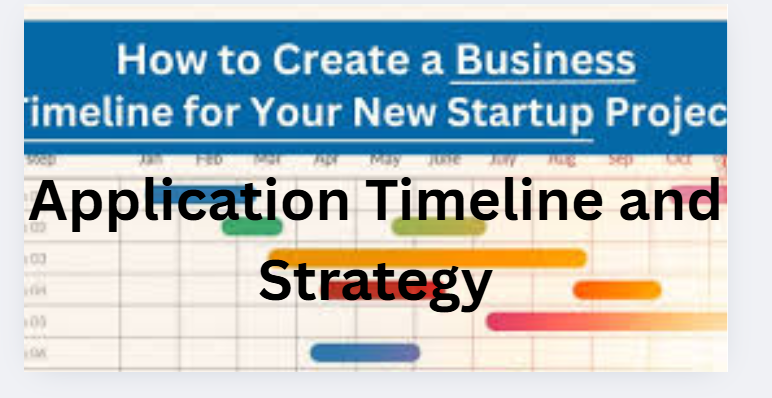
Imagine pursuing a master’s degree in Paris, Lyon, or Toulouse with your tuition covered, receiving a monthly living stipend, and even having health insurance included. This isn’t just a dream—it’s the reality offered by fully funded scholarships in France. For international students, France represents an incredible opportunity to receive a world-class education while immersing themselves in European culture.
The French government and universities actively invest in attracting talented students from around the world. While the application process requires careful planning, the opportunity to study in France with full financial support is within reach for qualified candidates. Here’s what you need to know about fully funded scholarships for the 2025 academic year.
Understanding the French System
France offers a unique higher education system with different types of institutions. There are public universities, which are affordable even without scholarships, and there are Grandes Écoles—prestigious, specialized institutions that are highly competitive. Many scholarship programs are specifically designed for international students to access these top-tier institutions.
A fully funded scholarship in France typically covers:
- Full tuition waiver
- Monthly living allowance (around €700-€1,200)
- Health insurance
- Housing assistance
- Sometimes includes travel costs
Major Scholarship Programs
The French government offers several prestigious scholarship programs for international students. These are highly competitive but provide comprehensive funding.
The Eiffel Excellence Scholarship Program is one of the most prestigious awards. It targets high-achieving international students at both master’s and PhD levels. The scholarship covers monthly allowances, travel costs, health insurance, and cultural activities. The application process is handled through French higher education institutions, meaning you must be accepted by a French university before they can nominate you for the Eiffel scholarship.
French Embassy Scholarships are offered by French embassies in various countries. These scholarships are country-specific, so you’ll need to check with the French embassy in your home country for available opportunities. They often cover similar benefits to the Eiffel Scholarship but may have specific eligibility requirements based on your nationality and field of study.
The Erasmus Mundus Joint Master Degrees represent another excellent opportunity. While these are European Union programs rather than exclusively French, many are coordinated by French universities and include study periods in France. These scholarships cover tuition, living costs, and travel expenses for international students throughout the program duration.
University-Specific Scholarships
Many French universities offer their own scholarship programs for international students. These can be excellent opportunities as they’re often less competitive than national programs.
Sciences Po, one of France’s most prestigious universities for social sciences, offers the Emile Boutmy Scholarship for non-EU international students. This scholarship covers partial to full tuition costs and sometimes includes a living stipend. The application requires demonstrating academic excellence and financial need.
HEC Paris, a leading business school, provides several full scholarships for its MBA and master’s programs. These are typically merit-based and can cover up to 100% of tuition fees plus living expenses. Competition is intense, but for business-minded students, this represents a life-changing opportunity.
Paris-Saclay University offers scholarships for international master’s students across various STEM and humanities fields. These scholarships provide €10,000 per year along with tuition waivers, making them an attractive option for students in scientific fields.
Application Timeline and Strategy

The key to securing a fully funded scholarship for 2025 is starting early. Most applications open in October 2024 and close between January and March 2025. However, some programs, particularly university-specific ones, may have earlier deadlines.
Begin your research at least 12 months before your intended start date. Create a spreadsheet to track different scholarships, their requirements, and deadlines. Focus on scholarships that align with your academic background and career goals rather than applying randomly to every opportunity.
Your application strategy should include these key steps:
Research French universities and programs that match your academic interests. Identify potential supervisors if you’re applying for research-based programs. Reach out to current international students in your target programs—they can provide valuable insights about the application process and student life.
Prepare your academic documents early. This includes your transcripts, degree certificates, and language test scores. Most programs in France are taught in French, but many universities now offer English-taught programs, particularly at the master’s level. Ensure you meet the language requirements for your chosen program.
Craft a compelling motivation letter. This is your opportunity to explain why you’re an ideal candidate for both the academic program and the scholarship. Be specific about how studying in France aligns with your career goals and what unique perspectives you can bring to the university community.
Secure strong letters of recommendation. Choose professors or employers who know you well and can speak specifically about your abilities and potential. Provide them with ample time to write detailed letters—at least one month before the application deadline.
Language Requirements
While many programs are offered in English, having French language skills significantly strengthens your application and enhances your experience in France. Most scholarships don’t require advanced French, but demonstrating basic proficiency shows your commitment to integrating into French society.
Even for English-taught programs, learning basic French will help you navigate daily life, make local friends, and fully appreciate your time in France. Many universities offer free or low-cost French language courses for international students.
Life as an International Student in France
Beyond the financial benefits, studying in France offers incredible cultural experiences. International students enjoy the same benefits as French students, including discounts on transportation, cultural activities, and access to university restaurants that offer complete meals for around €3-4.
France’s central location in Europe also makes it an ideal base for exploring other European countries during breaks. The student visa allows travel within the Schengen area, meaning you can visit neighboring countries without additional visas.
The application process for fully funded scholarships requires dedication and attention to detail, but the reward—a world-class education in one of Europe’s most culturally rich countries—makes the effort worthwhile. Start your research today, prepare your documents carefully, and take the first step toward your French educational adventure.
Taking the Next Step Towards Your Future in France
The journey to securing a fully funded scholarship in France is undoubtedly challenging, but it is a challenge worth embracing. It requires more than just academic excellence; it demands careful planning, a compelling personal narrative, and the courage to put yourself forward for a life-changing opportunity.
Remember that these scholarships are not just financial awards; they are an investment in your potential. The selection committees are looking for students who will not only excel in their studies but also contribute to their academic community and become future ambassadors for France in their home countries. Your application is your chance to tell that story—to connect your past achievements with your future ambitions and show how a French education is the crucial link between them.
Frequently Asked Questions (FAQs)
Do I need to speak French to get a scholarship?
Not necessarily. Many scholarship programs, especially for master’s degrees, are for courses taught entirely in English. However, having some French language ability will significantly strengthen your application and make daily life in France much easier. Some scholarships, particularly those for undergraduate studies or specific fields, may require French proficiency.
What is the difference between the Eiffel Scholarship and embassy scholarships?
The Eiffel Scholarship is a prestigious national program managed by the French Ministry for Europe and Foreign Affairs. French universities must nominate students for this award. Embassy scholarships are specific to your country of origin and are managed by the French embassy there. It’s possible to apply for both, but you’ll need to check each program’s specific rules about holding multiple scholarships.
When should I start applying for 2025 scholarships?
Start now. The application process for the 2025 academic year begins in late 2024. Most deadlines fall between January and March 2025, but some university-specific scholarships may have earlier deadlines. Beginning your research and preparation 12-18 months in advance gives you the best chance of success.
Can I work while studying on a scholarship?
Yes, international students in France are allowed to work up to 964 hours per year (about 20 hours per week) while studying. However, most fully-funded scholarships provide a stipend designed to cover your living expenses, so working may not be necessary. Always check the specific terms of your scholarship, as some may have restrictions on employment.
Are there age limits for these scholarships?
Most scholarships do not have strict age limits, though some may prefer candidates under a certain age (often 30 or 35 for master’s programs). The Eiffel Scholarship, for example, has an age limit of 25 for master’s programs and 30 for PhD programs. Always check the specific eligibility criteria for each scholarship.
What makes a strong scholarship application for France?
Beyond excellent grades, selection committees look for candidates with clear career goals that align with their program choice. They want to see how studying in France specifically will help you achieve these goals. A strong motivation letter that demonstrates your understanding of French culture and academia, along with relevant extracurricular activities or work experience, will make your application stand out.